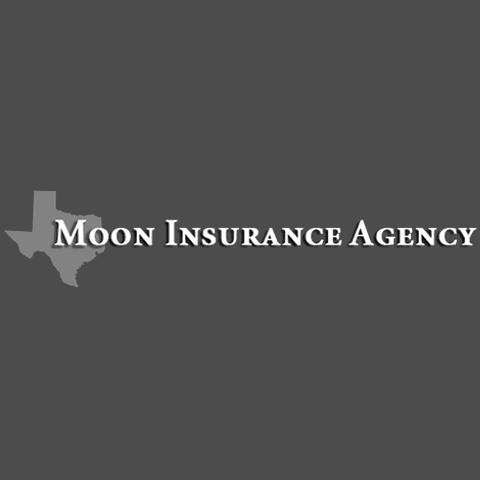- Landline
- (281) 475-8138
- dale@mooninsurance.net
- MoonInsurance
- Website
- www.mooninsuranceagencyhouston.com
Description
Moon Insurance Agency is the go-to insurance agency in Houston, TX. We understand that choosing the right insurance can be overwhelming. Since 1985, we’ve strived to make every interaction with our clients genuine and supportive. That’s why we’re here to guide you every step of the way, ensuring you get the coverage you need without the hassle. Our team of experienced professionals is dedicated to providing personalized solutions tailored to your unique needs. We take pride in our commitment to customer satisfaction and our deep knowledge of the local market. Contact us today!
Keywords insurance agency, insurance agent, home insurance, auto insurance, life insurance, business insurance, renters insurance, motorcycle insurance, independent insurance agent, car insurance, boat insurance, commercial insurance, rv insurance, atv insurance, independent insurance agency, bond insurance, commercial auto insurance.
Reviews
Opening hours
Payment Options
American Express , Visa , Cash , Check , Discover , MasterCard
Products And Services
-

Homeowners Insurance
Homeowners insurance provides financial protection against disasters. A standard policy insures the home itself and the things you keep in it. Homeowners insurance is a package policy. This means that it covers both damage to your property and your liability or legal responsibility for any injuries and property damage you or members of your family cause to other people. This includes damage caused by household pets. Damage caused by most disasters is covered but there are exceptions. The most significant are damage caused by floods, earthquakes and poor maintenance. You must buy two separate policies for flood and earthquake coverage. Maintenance-related problems are the homeowners' responsibility.
Link: Homeowners Insurance
-

Automobile Insurance
Auto insurance protects you against financial loss if you have an accident. It is a contract between you and the insurance company. You agree to pay the premium and the insurance company agrees to pay your losses as defined in your policy. Auto insurance provides property, liability and medical coverage: Property coverage pays for damage to or theft of your car. Liability coverage pays for your legal responsibility to others for bodily injury or property damage. Medical coverage pays for the cost of treating injuries, rehabilitation and sometimes lost wages and funeral expenses. An auto insurance policy is comprised of six different kinds of coverage. Most states require you to buy some, but not all, of these coverages. If you're financing a car, your lender may also have requirements. Most auto policies are for six months or a year. Your insurance company should notify you by mail when it's time to renew the policy and to pay your premium.
Link: Automobile Insurance
-

Life Insurance
There are many kinds of life insurance, but they generally fall into two categories: 1. Term insurance 2. Permanent insurance Term insurance is designed to meet temporary needs. It provides protection for a specific period of time (the "term") and generally pays a benefit only if you die during the term. This type of insurance often makes sense when you have a need for coverage that will disappear at a specific point in time. For instance, you may decide that you only need coverage until your children graduate from college or a particular debt is paid off, such as your mortgage. In contrast, permanent insurance provides lifelong protection. As long as you pay the premiums, and no loans, withdrawals or surrenders are taken, the full face amount will be paid. Because it is designed to last a lifetime, permanent life insurance accumulates cash value and is priced for you to keep over a long period of time. It's impossible to say which type of life insurance is better because the kind of coverage that's right for you depends on your unique circumstances and financial goals.
Link: Life Insurance
-

Business Insurance
Types of Business Insurance we provide: - General Liability - Workers Compensation - Bonds - Builders Risk - Business Owners Policy - Commercial Auto - Food Truck - Liquor Liability - ...and more! General Liability: If you have a personal umbrella liability policy, there's generally an exclusion for business-related liability. Make sure you have sufficient auto liability coverage. Unfortunately for every business owner, the chances of getting sued have dramatically increased in the last decade. General Liability insurance can prevent a legal suit from turning into a financial disaster by providing financial protection in case your business is ever sued or held legally responsible for some injury or damage. General Liability pays losses arising from real or alleged bodily injury, property damage, or personal injury on your business premises or arising from your operations. The Hartford's liability programs extend far beyond the provisions of typical policies, with broadened coverage and increased limits in over 30 areas. Workers Compensation: Workers compensation laws were created to ensure that employees who are injured on the job are provided with fixed monetary awards. This eliminates the need for litigation and creates an easier process for the employee. It also helps control the financial risks for employers since many states limit the amount an injured employee can recover from an employer. Workers Compensation Insurance is designed to help companies pay these benefits. As a protection for employees, most states require that employers carry some form of Workers Compensation Insurance. Workers Compensation Insurance is not health insurance. Workers Compensation is designed specifically for injuries sustained on the job. In most states, if you have employees, you are required to carry Workers Compensation coverage. Even in non-mandatory states, it can be a very good idea, particularly if you have many employees, or if they are engaged in hazardous activities. Commercial Auto: As a business owner, you need the same kinds of insurance coverage for the car you use in your business as you do for a car used for personal travel -- liability, collision and comprehensive, medical payments (known as personal injury protection in some states) and coverage for uninsured motorists. In fact, many business people use the same vehicle for both business and pleasure. If the vehicle is owned by the business, make sure the name of the business appears on the policy as the "principal insured" rather than your name. This will avoid possible confusion in the event that you need to file a claim or a claim is filed against you. Whether you need to buy a business auto insurance policy will depend on the kind of driving you do. A good insurance agent will ask you many details about how you use vehicles in your business, who will be driving them and whether employees, if you have them, are likely to be driving their own cars for your business. While the major coverage are the same, a business auto policy differs from a personal auto policy in many technical respects. Ask your insurance agent to explain all the differences and options.
Link: Business Insurance
-

Bond Insurance
What is a Surety Bond & How Does it Work? A surety bond is a contractual agreement entered into by a project owner or business, which guarantees that a project will be completed or business regulations will be followed. It is a legally binding contract composed of three parties: I. The principal is the business or individual purchasing the bond to guarantee future performance. II. The obligee is the entity that requires the bond; usually a government entity or municipality whose goal is to protect the government and its citizens. III. The surety is the insurance company that backs the bond, providing a line of credit in case the principal fails to perform. Surety bonds can be difficult to understand. Essentially, it is insurance for the obligee, paid for by the principal, and backed by the surety. If the principal fails to fulfill the task, the obligee may make a claim with the surety to recover losses. The insurance company will pay reparations up to, but not exceeding, the bond amount, which will then be repaid by the principal. Obtaining a Surety Bond Before purchasing a surety bond, it is crucial to know what type of bond you require. If you purchase the wrong one, it will be rejected by the obligee. If your bond is for a specific contract, then you need a contract bond, which includes bid bonds, performance bonds, and payment bonds. If your bond is not for a specific contract, it will fall under one of the following categories: License and Permit Bonds Court Bonds Dishonesty and Service Bonds If you are still unsure as to which bond type you need, you can contact us for help.
Link: Bond Insurance
-

Final Expense Insurance
Final expense insurance is there to cover the bills that your loved ones will face after your death. These costs can include medical bills and funeral expenses. Final expense insurance is also known as burial insurance. What you need to know A final expense life insurance policy is different than “insuring your life.” Insuring your life concerns leaving your family and loved ones with enough support after you pass away. Term and permanent life insurance value your policy as proportionate to your earning power now and for the rest of your life. With funeral insurance, the value of your policy is proportionate to the expense of your desired funeral. While other forms of life insurance can top a million dollars, it’s rare for final expense insurance policies to get above $20,000. Do You Need Final Expense Insurance? That answer depends on a couple of things. Do you currently have a permanent or term life insurance policy? It's likely that the payout on this policy will cover your final expenses while also leaving your loved ones the protection they need in the event of your death. Are you "self-insured"? Being self-insured is simply using your own money instead of a life insurance payout. Lastly, do not rely on the lump sum death payout from Social Security - it's only $255 Contact Moon Insurance for any additional questions you have!
Categories
Insurance(281)475-8138 (281)-475-8138 +12814758138 (281)484-8320 (281)-484-8320 +12814848320
Map 360 FM 1959 Rd
Loading map...






